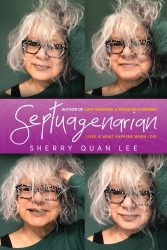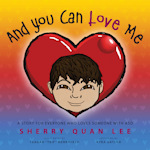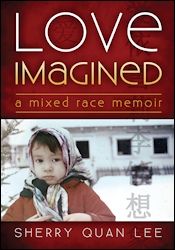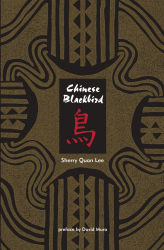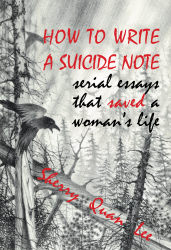Reading THE COFFEE SHOP NE July 21, 2023
Intro: I Want Cake (bio) [see previous post of this poem]
1. There’s something about writing, about being a writer, you can’t retire from it, it’s got a hold on you despite the fact you might “want cake.” Once a writer always a writer, I suppose.
Ten Things I Know About Being a Writer (credit to the many writers who may or may not have influenced the following):
1. There are many reasons for writing/for being a writer—for healing, for your legacy, for pleasure—because you want to be published. No matter the reason, there’s usually a passion for what you are writing about (Richard Hugo mentions “obsession. “Don’t worry if you tend to write about the same thing over and over again most writers do.
2. Know that writing, like identity or because of identity is fluid [not fixed]and changing, and mostly gets better the more you write. Feel free to experiment with formats within a particular poem or story or maybe your poem is a short story your short story is a poem or maybe you want to write a children’s book or a novel.
3. It’s often about who you know (how I got my job at Metro State, how I got published, etc.) Pay attention to the people you meet.
4. Read books, including novels, novels about writers/about writing/about publishing
a. FINDING MAKEBA by Alexs Pate
b. WOMEN WHO RUN WITH THE WOLVES by Clarissa Pinkola Estes
c. !YO! by Julia Alvarez
d. THE TRIGGERING TOWN by Richard Hugo
5. Take classes, join workshops share at open mics
6. Be spontaneous, ready to write when the need arises. I don’t write every day, every morning, maybe not even once a month. Some may call it writers block, but I just consider it avoidance.
Avoidance, About Writing
Recently a colleague started cleaning shared office space in a fury. Frantically dusting and polishing and sweeping and moving clutter from one environment to another or trashing it. She admitted she was avoiding yet another challenging job responsibility. Soon everyone in the office was cleaning.
The writing process for me is about avoidance.
I don’t write.
I clean my house. I go shopping. I watch a movie. Sex. Sleep.
Eventually the writing will win
no dirt, no money, no libido
I gather my tools: coffee, cigarettes, potato chips, red licorice,
dark chocolate
sit at a dining room table
shuffle papers. I pee. I smoke a cigarette. I drink coffee
writing happens when it needs to happen
what is it you don’t know you know you need to get rid of
I know there is something I know or I wouldn’t be sitting here
writing is a literary vacuum, it sucks up and eliminates
I write on recycled paper
slash and surrender: exchange dead words with alive ones
as a first draft simmers I continue to revise
scrutinize the tone, the rhythm–the meaning
draft number two is ready to print
before draft number one has finished printing
each new draft allows me to live vicariously
clutching draft number two I disappear
to smoke a cigarette and read aloud
if I’m at a house in the woods I read to the Gordon Setter
my creativity exhilarates me
a sassy word, a delicate word,
a word that sings, or words that singe
tires me
if the man of the house is around, he will stand next to me
listening, smoking; he will touch me, kiss me, distract me
eventually I will toss the writing aside—love making
part of the process
on a good day the process repeats itself
and, again, I’ve got cleaning and sex on my mind.–Sherry Quan Lee
But if you insist on a rigid writing schedule one way to get started is using prompts: open a book or a magazine, or your own journal and grab a phrase that jumps out at you. Or look online many writers offer writing prompts. Maybe you’ll write crap, but more often or not I would discover what I didn’t know I needed to write about. Those writing exercises might even turn into a book.*see examples below
7. Save your work until and if you feel a need not to save your work (I recycle often. Letting go.) Know what works for you.
8. Revise, make it better—research
9. Find someone to be your writing confident, to share your work, even those awkward first drafts. By phone, by text, by email. This is not popular advice. But for me it’s a letting go, it’s being able to breathe after an intense period of writing. You may not be ready for criticism though, so let your friend know if you don’t want feedback.
10. DON’T JUDGE YOURSELF DON’T COMPARE YOURSELF — KNOW YOURSELF. TRUST YOURSELF.
Richard Hugo, The Triggering Town, wrote: keep your crap detector on and other interesting and perhaps helpful tidbits such as:
1. “I believe that a writer learns from reading possibilities of technique, ways of execution, phrasing, rhythm, tonality, pace. Otherwise, reading is important if it excites the imagination, but what excites the imagination may be found in any number of experiences (or in a lack of them).”
2. “In truth, the writer’s problems are usually psychological, like everyone else’s.”
3. “The initiating subject should trigger the imagination as well as the poem.”
4. “If you feel pressure to say what you know others want to hear and don’t have enough devil in you to surprise them shut up.”
5. Chapter 5 “Nuts and Bolts” (tools as a writer): “Read your poem many times. If you don’t enjoy it every time, something may be wrong.”
“What must I give more death to today,/in order to generate more life.”–Clarissa Pinkola Estés
Women Who Run With the Wolves
1 “Being with real people who warm us, who endorse and exalt our creativity, is essential to the flow of creative life. Otherwise we freeze….Every woman is entitle to an Allelujia Chorus.”
2. “Art is not just for oneself, not just a marker of one’s own understanding. It is also a map for those who follow after us.”
Basically using Jungian philosophy, she interprets fairy tales. And discusses the creative life.
How Dare We Write
1. 30 contributors
2. Each story ends with a writing exercise
3. “…offers a much-needed corrective to the usual dry and uninspired creative writing pedagogy….”
From workshops created by prompts:
a. IF I TOLD YOU THE TRUTH
b. St Patrick’s Day 2017
I wish you well in your journey as a writer. Your journey is not someone else’s journey, your journey will have its ups and downs and exits and entrances, your journey may be well thought out or it may be mostly spontaneous trips to somewhere or nowhere. Be flexible. But also, be courageous.
I will end with this a quote from an earlier poem of mine:
Writers I admire break my heart because they have heartbreaking/stories to tell and they tell them because they know there are others/like me who want to hear them because our lives have been broken/and we have stories that break hearts and broken hearts/are open hearts and anything open can be filled/with knowledge and possibility and full hearts must empty/so stories are always coming and going.
*examples of poems initiated by writing prompts
IF I TOLD YOU THE TRUTH [each line could become another poem]
If truth be told my friend is a born-again Christian, my son is a redneck.
If truth be told, loneliness is my demon and always has been.
The truth is my sister does not talk to me my mood swings cause her stress; she’s
done it before, stopped loving me when I loved a woman,
and my mother, well my sister stopped talking to her, too.
If truth be told, according to Mother, I am white, white, white, but I’m not
and neither is she.
If truth be told I’m not a writer, my advisor said so; she was wrong.
If truth be told I have been cloistered; it wasn’t my calling but my situation.
If truth be told my car isn’t safe, my house isn’t breathing, I could in a wink of an eye be homeless.
If truth be told I’ve fallen before, but this time the fracture wasn’t worth mending.
If truth be told I want to sing.
If I told you the truth, I always wanted to be the clown the stand-up comedian the one no one
would guess wasn’t me.
If I told you the truth I wouldn’t tell you the truth, but ease into your life.
If truth be told being of a certain age is not what someone else says it is, not what you expect,
every day is a question mark.
If truth be told you and I don’t meet online, or in a bar, in the future, or the past.
The truth is tomorrow, I might leave my house, walk to the mailbox, but today I’m in my pj’s, eating popcorn, watching Netflix.
©Sherry Quan Lee
March 18, 2017
Saint Patrick’s Day 2017 (an event, what did it conjure)
Dear red hair son of the Irish plantation owner do you know how complicated you’ve made my life? You, so bold in your southern ways. Did your father teach you not to fear consequences, did he tell you my great-grandmother was yours for the taking because he owned her. Or did he say, hands off, son, she’s mine? Ms. Greer kept your house clean and the both of you were surely well fed. And you, in return, paid her in lust, in rape, in children. I heard the rumors, that you loved her, my great grandmother, her glistening brown skin, her textured thick hair, strong legs, rough hands; but it wasn’t a love story. Grandmother was born. She traveled North, I don’t know how she escaped, and married a man with his own black white history and the babies kept coming. Maybe this was never my story and I am an imposter but there is this red head boy that haunts my dreams and this poem that dares to tell the truth. And my birth certificate: Mother’s race Negro.
Sherry Quan Lee
©March 18, 2017





